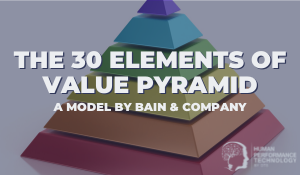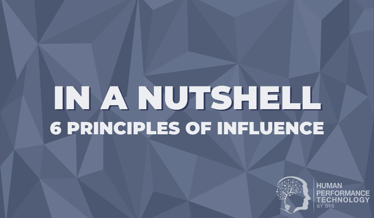World-Class Thinking: 4 Key Lessons from Naval Ravikant
The mind of a mathematician and the heart of a Buddhist monk, Naval Ravikant is one of Silicon Valley’s most interesting and respected CEOs. A rich source of insight on decision making, habits, and happiness, Naval’s 2-hour Farnam Street interview is easily the best podcast I’ve listened to in several years.
If you're like most people and find yourself confused by the technical discussion around Bitcoin, you may also want to check out this lengthy but lucid introduction to cryptocurrencies featuring Naval, the quiet genius Nick Szabo, and Tim Ferriss.
Naval hasn't yet published a book outlining his central business-life philosophy. I’ve attempted to piece together some recurring themes, primarily from podcasts, videos, articles, and Tweets. Because much of the source commentary is off-the-cuff, I think it's only fair to consider the underlying idea or sentiment being expressed, and not just the words, lest we create a linguistic hellscape in which business leaders only release carefully filtered corporate statements.
The usual disclaimer: Except where quotations appear, thoughts have been paraphrased and don't necessarily reflect the views of the original author.
“Decision making is everything... someone who makes decisions right 80% of the time instead of 70% of the time will be valued and compensated in the market hundreds of times more.”
1. Decision Making is the Game, Mental Models are the Tools
In the age of leverage, where companies can access skilled workforces and increasingly powerful technologies, the returns on good judgment are exponential. Entrepreneurs who are wrong only slightly less often than their competition may be looking at rewards, not in the thousands, but in the hundreds of millions. This is one of the reasons why Naval is big on mental models. The better the quality and quantity of mental models at your disposal, the greater the likelihood of pushing down your average error rate. It’s simple logic, but it hardly means that most or even a sizeable chunk of the population is committed to this endeavour, which leads to the next point.
“The tools for learning are abundant. It’s the desire to learn that’s scarce.”
2. Learning is the Ultimate Meta Skill
What intelligence and material success he might have, Naval attributes to the consistent practice of reading for about 1-2 hours a day, a habit made successful in part because he doesn’t impose strict rules on himself. There’s no guilt with jumping around, skimming pages, or never finishing a book. Enjoying what you read matters more than forcing yourself through the latest chart-topping business / self-help books, which often have one or two key ideas buried in several hundred pages of filler. As long as you do it every day, reading will become a habit — and arguably the single most valuable habit that you will ever form. It's that important. On the Tim Ferriss podcast (2015) Naval insists: “If you take away anything from this podcast, it’s figure out how to read.”
"Technology is applied science. Science is the study of nature. Mathematics is the language of nature. Philosophy is the root of mathematics. All tightly interrelated.”
3. To Build Skyscrapers, Study the Ground
Naval is a believer in “first principles thinking,” which can be seen as the ability to understand the essential building blocks of product, system, or subject. For example, trigonometry rests on arithmetic. But suppose we miss a fundamental arithmetic lesson early in school. Unable to move from floor 3 to floor 4, we fall back on “process thinking,” reasoning by analogy, and memorisation tactics. (If I see X problem, I know to do Z formula.) We may know how, but we have lost the why. It's like only ever being able to tie your shoelaces the way you were taught in 1st grade because your parents didn't teach you anything about knot formation or tension. Due to something as common as poor teaching, we may see ourselves as “not intellectual,” or “dumb,” and lose interest in academics all together, when in fact our anguish can by undone if we focus on restoring some small but critical links in the chain.
"Happiness is the default state. It’s what's there when you remove the sense that something is missing in life."
4. Happiness is Your Default State
As a species, we are addicted to The Next Thing of Happiness: a product, a person, a promotion, or a destination that, once obtained, will make us feel complete. This notion — that something external is going to bring lasting peace and joy — is a fundamental delusion from which we all suffer. Going against modern self-help advice and returning to ancient Buddhist wisdom, Naval views happiness as less about positive thinking, mindset, or motivation and more about the absence of desire. Once you strip back the incessant chatter of the hoping-fearing mind, you find stillness and at the heart of stillness is peace. Although it may sound like a nonsensical Zen paradox, the death of your mind makes you feel alive. Cultivating present moment awareness is one of the most difficult long-term habits to build. As often as possible Naval tries to operate in "debugging mode" until he needs help from the useful but otherwise completely mad, poo-flinging "monkey mind."
More Naval Quotes
- "Be present above all else."
- "I don’t believe in short-term thinking."
- "All the benefits in life come from compound interest — money, relationships, habits — anything of importance."
- "Who you do business with is just as important as what you choose to do."
- "If you can't see yourself working with someone for life, don't work with them for a day."
- "Success is the enemy of learning. It can deprive you of the time and the incentive to start over. Beginner’s mind also needs beginner’s time."
- "The best mental models that I have found have come through evolution, game theory, and Charlie Munger."
- "The theory of evolution is my binding principle whenever I try to explain any action."
- "The progress of the human race is the history of technology."
- "Forty hour workweeks are a relic of the Industrial Age. Knowledge workers function like athletes - train and sprint, then rest and reassess."
- [On writing] "I use the Hemingway technique: 'All you have to do is write one true sentence. Write the truest sentence that you know.'"
- [On the Scott Adams blog post, 'The Day You Became a Better Writer’] "I still open up that blog post and I put it in the background anytime I’m writing anything that’s important; it’s that good. I use it as my basic template for how to write well."
- "It’s the mark of a charlatan to try and explain simple things in complex ways and it’s the mark of a genius to explain complicated things in simple ways."
- "To have peace of mind you have to have peace of body first."
- "The older the problem, the older the solution."
- "Humans are basically habit machines… I think learning how to break habits is actually a very important meta skill and can serve you in life almost better than anything else."
- "What investing has taught me is humility. It’s taught me that nobody knows anything… it shows how much luck is involved in the system."
- "A contrarian isn’t one who always objects - that’s a conformist of a different sort. A contrarian reasons independently, from the ground up, and resists pressure to conform."
- "Earn with your mind, not your time."
- "Meditation will recognise how out of control your mind is … It is like a monkey flinging feces, that’s running around the room, making trouble, shouting, breaking things. It’s completely uncontrollable. It’s an out-of-control mad person."
- "They call it 'peace of mind' but maybe it should be called 'peace from mind.'"
- "A fit body, a calm mind, a house full of love. These things cannot be bought - they must be earned."
Resources
Twitter: @naval
Naval Ravikant - Farnam Street Podcast (2017)
Naval Ravikant Interview - The Tim Ferriss Podcast (2016)
Naval Ravikant Interview - The Tim Ferriss Podcast (2015)
![]() Naval Ravikant, early investor in Uber and Twitter, and CEO of AngelList — a website for startups, angel investors, and startup job seekers.
Naval Ravikant, early investor in Uber and Twitter, and CEO of AngelList — a website for startups, angel investors, and startup job seekers.
Topics:
Smarter Thinking
Theo Winter
Client Services Manager, Writer & Researcher. Theo is one of the youngest professionals in the world to earn an accreditation in TTI Success Insight's suite of psychometric assessments. For more than a decade, he worked with hundreds of HR, L&D and OD professionals and consultants to improve engagement, performance and emotional intelligence of leaders and their teams. He authored the book "40 Must-Know Business Models for People Leaders."



We Would Like to Hear From You (0 Comments)